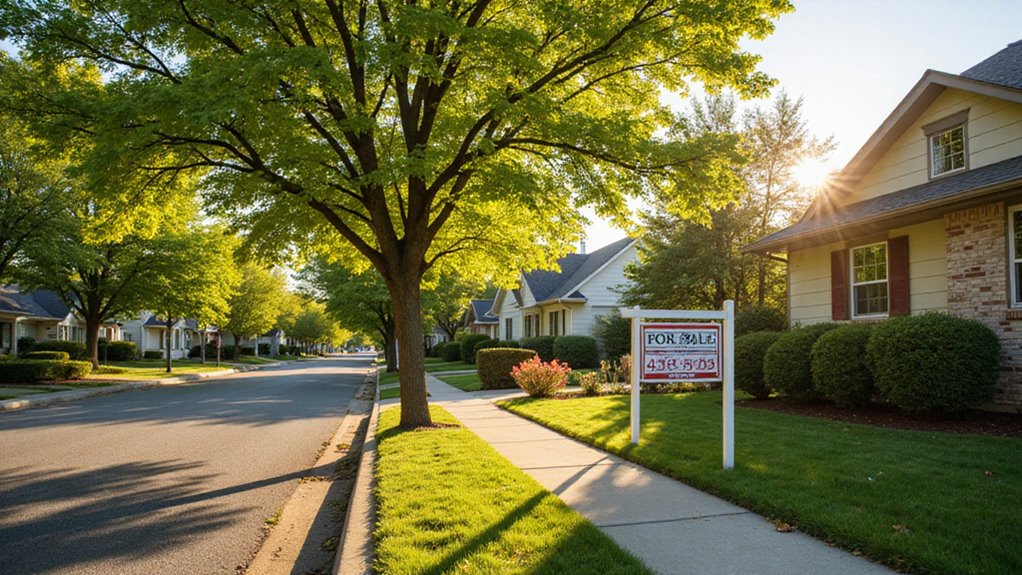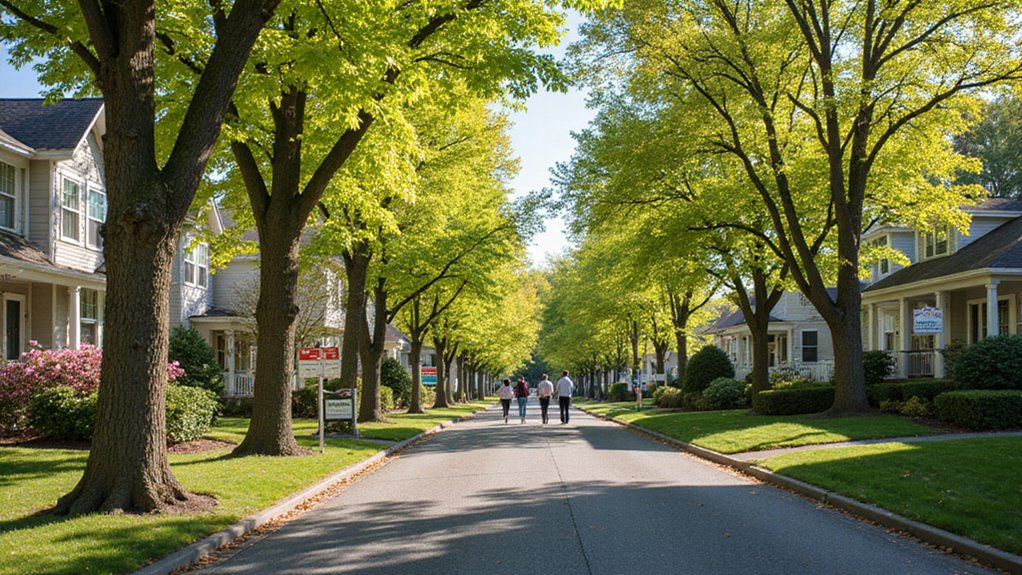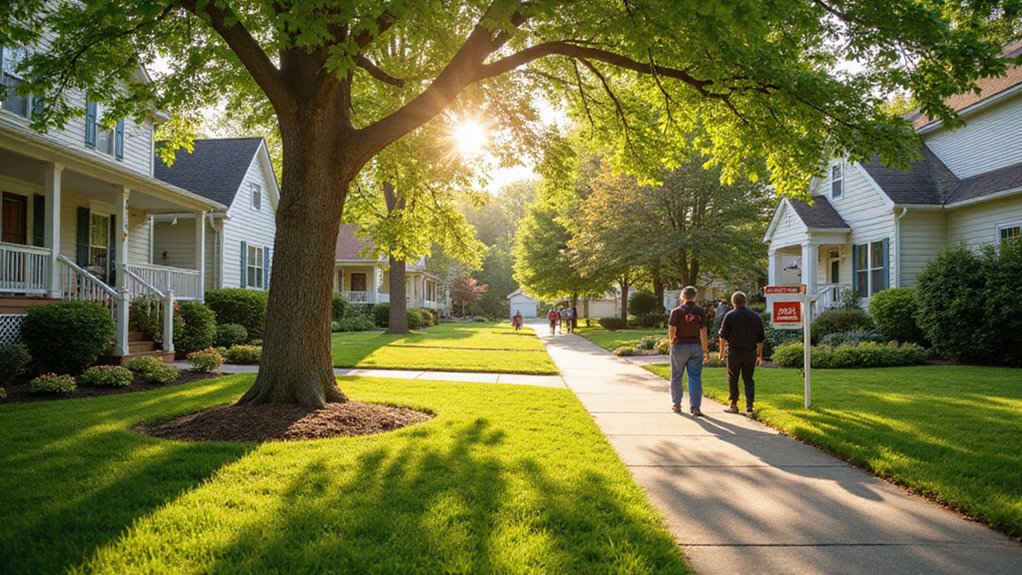
Table of Contents
Many landlords wonder when to sell a rental property. Timing matters more than most realize. Selling at the wrong time can mean less profit and more hassle.
If you list during a slow season, you might face fewer buyers and lower offers. Expenses can pile up as your property stays on the market. Stress and uncertainty can grow, making the process frustrating.
The best time of year to sell a rental property is usually late spring or early summer. This is when buyer demand peaks, and you can get top dollar.
Planning your sale around this window can make the process smoother and more profitable. This blog will guide you in picking the right time to sell your rental property for the best results.
Key Takeaways
- Spring and early summer offer peak buyer demand and higher sales prices, making them the best seasons to sell a rental property.
- Listing before the start of a new school year attracts family buyers seeking to move during summer breaks.
- Selling near lease expiration provides flexibility for buyers and avoids complications with existing tenants.
- Monitoring local market trends and economic conditions ensures you sell when demand and home values are strongest.
- Aligning your sale with low interest rates and favorable tax planning can maximize your financial returns.
Understanding Seasonal Real Estate Trends

Seasonal trends affect the real estate market each year. Knowing these trends helps you decide the best time to sell your rental property. Selling at the right time can lead to a faster and more profitable sale.
Spring and early summer usually have the most buyers. Families often want to move before the next school year starts. Homes listed during these months tend to sell quicker and for higher prices. If you want to avoid typical selling headaches, consider the unique and creative solutions offered by local buyers.
Late summer and winter holidays usually see fewer buyers. Properties may stay on the market longer during these times. If you list your property then, you might need to lower the price.
If you avoid listing during slow periods, you increase your chances of a successful sale. Timing your sale with peak demand can make a big difference. Using seasonal trends can help you get the best results.
If you need to sell quickly, working with a 3 step process for cash offers can help you avoid waiting for peak market times and still achieve a fast sale.
Evaluating Local Market Conditions
Local market conditions help decide the best time to sell your rental property. These conditions can affect your sale price and buyer interest. Understanding them can lead to better decisions.
When considering a sale, it’s helpful to know that no obligation is required when you start the process, making it easy to explore your options without commitment. Knowing your local market can make a big difference in when and how successfully you sell your rental property.
You should look at supply and demand in your area. Recent sales and rental trends show if the market favors sellers or buyers. If demand is high, you may get a better price.
Consider these key factors when planning your sale. Low inventory means fewer homes for sale, often raising prices. Rising rent prices can attract more investors to your property.
Recent sales of similar homes offer a good price guide. If comparables sell quickly, your property might too. Use this information to set a fair price and sell at the right time.
If you’re dealing with horrible tenants or are tired of being a landlord, local market trends can help you decide when to act for the best outcome.
Impact of School Calendars on Buyer Demand

School calendars strongly affect when families look for homes. Most families prefer to move before a new school year starts. This leads to more buyers in late spring and early summer.
Listing your property during this time can attract more families. Homes often sell faster and for better prices in these months. If you want to reach families, consider listing before school resumes. Selling during this period can help you get a cash offer more quickly, especially if you work with a local home buying company.
Demand usually drops during the middle of the school year. Families avoid moving then to keep routines stable. You may see fewer buyers if you list at this time.
A smaller increase in demand can occur during winter holidays. Some buyers use this break to move or search for homes. If you must list in winter, targeting this period could help.
If you want a quick and simple house selling process that avoids the hassle of listing, working with a professional home buyer may be a good option.
Sell My Oklahoma House Fast For Cash Now
Tax Implications of Selling at Different Times
When you sell your rental property, the timing can directly impact your capital gains tax bill. You’ll want to consider how selling early in the year versus closer to year-end opens up different tax planning opportunities. Strategic timing lets you align your sale with year-end tax strategies and potentially optimize your after-tax returns.
If you’re hoping to avoid foreclosure or resolve delinquent taxes and liens, selling at the right time of year can also help you take full advantage of expert assistance and flexible solutions. In Choctaw, working with a local buyer who offers a 3 Step Process can further streamline your sale and help you address tax or payment challenges efficiently.
Capital Gains Tax Timing
Capital gains tax depends on when you sell your rental property. The timing of your sale can change how much tax you pay. Planning your sale around the tax year can help reduce what you owe.
If your tenant’s lease is ending soon, consider how that timing affects your taxes and property duties. Selling early in the year gives you more time to prepare for any tax bills. Waiting to sell later may delay your tax payment, but check if this fits your investment goals.
Year-End Tax Strategies
You can lower your tax bill by choosing when to sell your rental property at year-end. Selling late in the year helps you control when you report your capital gains. This makes it easier to plan your taxes.
If you sell in December, you may offset your gains with expenses or losses from other investments. This is useful if you had high rental income earlier in the year. You will also know your yearly income, which helps with tax planning.
If you understand how your sale date affects your taxes, you can save money. You may be able to shift your income into a different tax year. Smart timing helps you keep more of your investment returns.
Coordinating With Lease Expirations

Coordinating with lease expirations helps you get the best price and more buyer interest. Listing a property when the lease ends gives buyers more options. Owner-occupants can move in, and investors can set new rents.
If you’re dealing with difficult situations like foreclosure, liens, or tenant issues, timing the sale with lease expiration can make the process smoother and less stressful. Timing your sale with lease expirations attracts more buyers and can help you achieve the best price for your property.
You should check lease end dates every year. Planning your sale 60 to 90 days before a lease ends is best. This timing avoids last-minute issues.
If you tell tenants early, you reduce surprises and keep things friendly. Clear communication also helps show the property easily. Buyers want to know if the property is vacant or occupied.
If you highlight the occupancy status, buyers can make better decisions. Investors may pay more if they can set new rents. Owner-occupiers often prefer vacant homes for quick move-in.
Consulting with a local Oklahoma City home buying expert can help you navigate lease expirations and unique selling situations for the best results.
Weather Considerations and Curb Appeal
Good weather helps your rental look its best and attracts more buyers. Properties show better without snow, rain, or dead plants. If you want a quick sale, consider listing during spring or early summer.
Fresh landscaping and sunlight improve curb appeal. Blooming gardens make online photos and drive-by visits more appealing. Buyers often prefer homes that look clean and bright.
National Association of Realtors data shows homes sell faster and for more money during good weather. If you study your area’s weather trends, you can plan your sale for the right time. This strategy can help your rental make a strong first impression.
If you’re facing difficult situations like unwanted repairs or challenging tenants, timing your sale during the best weather can help attract more motivated buyers and relieve the stress of holding onto the property.
Maximizing Profits During Peak Selling Months

Peak selling months, like spring and early summer, help you earn more from your rental property. Buyer activity increases, and homes sell faster during these times. You can often get higher offers if you list now. Listing your rental in spring or early summer attracts more buyers, faster sales, and often higher offers.
If your property attracts vacation home buyers, these months are important. Many international buyers also prefer to purchase before the summer begins. If you target these groups, you may see more interest and better prices.
Buyers often want to close deals before school breaks. This creates more competition for both local and vacation homes. Good weather and improved curb appeal can make your property more attractive.
If you plan to sell, consider listing in spring or early summer for the best results. You could benefit from motivated buyers and higher listing prices. If you wait until off-peak months, you might miss these advantages.
Navigating Off-Season Sales
Off-season sales can still be successful with the right strategies. Fewer buyers in late fall and winter does not mean you cannot sell. You just need to adjust your approach.
Holiday marketing can make your property feel inviting and cozy. Serious buyers often shop during the holidays and may want to close quickly. If you highlight these points, you can attract more interest.
Your rental’s location and amenities may appeal to vacation buyers. If your property is near travel destinations, mention this in your listing. Buyers often look for rentals that can generate income right away.
Emphasize how your property is ready for immediate use. If buyers see a turnkey rental, they may act fast. By focusing on these benefits, you can stand out in a slow market.
Analyzing Buyer Demographics for Rental Properties

To get the best price when selling a rental, know who your buyers are. Different buyers look for different features in a property. Buyer trends and local shifts strongly affect your selling strategy.
Millennials and Gen Z often want modern homes in cities or areas with many jobs. These buyers like tech-friendly spaces and move-in-ready units. If your property has these features, highlight them in your listing.
Modern, tech-friendly, move-in-ready homes attract Millennials and Gen Z buyers, especially in job-rich city locations. Highlight these features to stand out.
Retirees usually prefer easy-to-manage homes in nice climates or near shops and services. They want stable, low-upkeep rentals. If your unit fits these needs, focus your marketing on comfort and convenience.
Investors care most about steady rent income and future value. Recent changes in the local population can guide their choices. If your area is growing, show how your property can bring strong returns.
Check which group is most active in your market before listing. If you match your sales approach to the right buyers, you can sell faster and at a better price.
Sell My Oklahoma House Fast For Cash Now
Economic Factors Affecting Timing
Economic conditions can affect the best time to sell your rental. Low interest rates make it easier for buyers to get loans. This can raise demand and help you get a higher price.
Employment data is also important. Strong job growth means more people are able to buy homes. If unemployment is rising, fewer buyers may be interested.
Check both local and national economic reports before listing your property. If interest rates are low and jobs are growing, it may be a good time to sell. Aligning your sale with good economic signals can attract more buyers and better offers.
Preparing Your Property for the Market
To boost your property’s market value, focus on enhancing curb appeal and tackling any maintenance issues before listing. Buyers form quick opinions, and data shows homes with strong first impressions sell faster and for higher prices. By addressing repairs upfront, you position your rental to stand out in a competitive market.
Enhancing Curb Appeal
Enhancing curb appeal makes your rental property more attractive to buyers. Simple improvements can raise your sale price by up to 7%. Curb appeal creates a strong first impression and helps your property stand out.
Landscaping updates are important if you want a polished look. Fresh mulch, trimmed hedges, and new flowers show the property is well cared for. Clean walkways and siding with a power washer to give a fresh, “move-in ready” feel.
Signage is also key if you want to attract buyers. Place the “For Sale” sign where it is easy to see from the street. Good curb appeal can bring more interest and better offers.
Addressing Maintenance Issues
Unresolved maintenance issues can lower your property’s value and delay a sale. You should fix problems before listing your home. Common issues include leaky faucets, old HVAC systems, or broken outlets.
Homes with recent repairs or updates often sell faster and for more money. If you address repairs, you may increase your sale price by up to 10%. Buyers also notice small things like chipped paint or worn floors.
Once repairs are done, consider simple landscaping and interior staging. These steps can help your home look move-in ready. Well-maintained homes attract more buyers and sell more quickly.
Working With Real Estate Agents on Timing
Partnering with a real estate agent helps you choose the best time to sell your rental property. Agents follow local market trends and know when demand is highest. If you want to sell at the right time, an agent’s knowledge is valuable.
An experienced agent can suggest the best month to list your property. They can also help you attract buyers interested in rental income. If you need advice on upgrades or staging, your agent can guide you.
With expert help, you can list your property when prices are strong. If you follow their advice, you increase your chances of a profitable sale. Working together, you can make the most of current market conditions.
Considering Regional Differences
You can’t afford to ignore how regional trends shape your exit strategy. Seasonal market fluctuations and local economic factors directly impact buyer demand and pricing power in your area. Analyze recent data and timing patterns in your specific market to maximize your sale’s upside.
Seasonal Market Fluctuations
Seasonal market fluctuations affect the best time to sell your rental property. Prices and demand change throughout the year in different regions. If you want the best price, you should check how your local market trends shift each season.
Spring and early summer often bring more buyers and higher offers. In warmer places, the busy season might last longer, even into fall. Colder areas usually slow down as winter starts.
If you adjust your rental price to match demand, you can attract more interest. Holiday marketing may help you find serious buyers who need to move quickly. If you watch local patterns, you can plan your sale for the most active months.
Local Economic Factors
Local economic factors affect when you should sell your rental property. Your city’s trends are more important than national news. If you follow these trends, you can choose the best time to sell.
Job growth and changes in population impact housing demand. If a big employer moves in or out, prices may change. Watch for these shifts in your area.
Interest rates also influence buyer demand. Rising rates can reduce the number of buyers who qualify for loans. Lower rates might increase competition among buyers.
If you track local sales and economic signs, you can avoid costly mistakes. Compare your property to others recently sold nearby. If you do this, you will be more likely to get the best return.
Weighing Personal Financial Goals and Timelines
Selling your rental property should match your financial goals and timeline. This choice can help you get the most value from your investment. Decide if selling, holding, or refinancing is best for your needs. Make sure selling your rental fits your financial goals and timeline to maximize the value of your investment.
If you need cash for a new project, selling may be the best option. Refinancing could increase your cash flow or reduce your costs. If you want to stay in the market, refinancing lets you keep the property while benefiting from its value.
You should also look at your tax situation and future plans. This sale should fit with your long-term investment strategy. If it does not, consider waiting or choosing another option.
Compare the profits from selling with the benefits of refinancing. Check if selling now matches your return goals and risk comfort. Think about how this choice will change your investment mix.
Conclusion
If you want to sell your rental property, timing can make a big difference. Sellers who consider market trends and lease cycles often see better results. A well-timed sale can help you avoid stress and maximize your profit.
If you need a fast and easy solution, we buy houses for cash. This option can save you time and remove the hassle of repairs or showings. You will not have to wait for the perfect season or buyer.
If you are ready to sell, we at Shawn Buys Houses are here to help. Reach out to us today to get a fair cash offer. Let us make your selling process simple and smooth.
